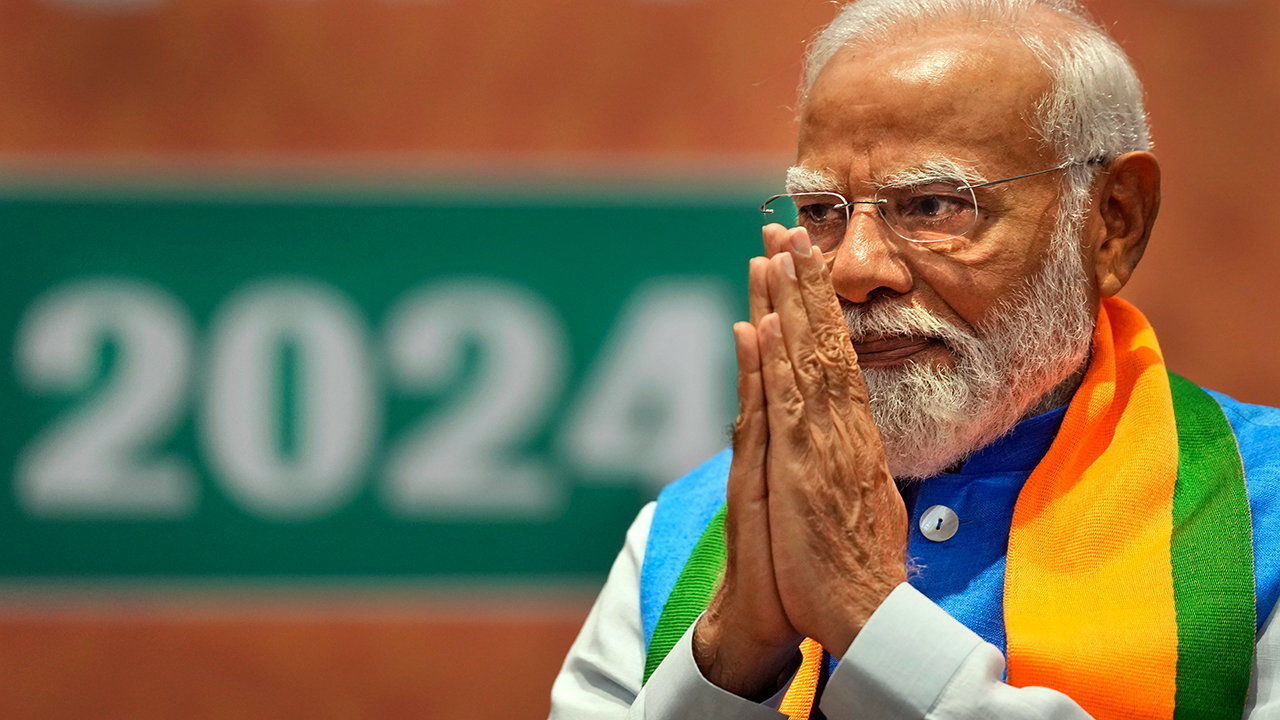
Your browser does not support the <audio> element.
HOW MUCH is one-party rule worth to India Inc? Judging by the market reaction to the results of the general election, the figure is around $400bn. That is the total market value lost by Mumbai-listed stocks on June 4th, when it turned out that rather than securing a big majority, as exit polls had predicted, the ruling Bharatiya Janata Party (BJP) of Narendra Modi would need coalition partners to govern.
Investors’ panic proved short-lived. By June 10th the Mumbai bourse had clawed back all its losses, after Mr Modi quickly assembled a coalition perceived to be sympathetic to his pro-business economic agenda. The previous day a “Who’s Who” of corporate India applauded in the presidential palace as Mr Modi was sworn in as prime minister for a third time. Modi 3.0, as Indians refer to the new government, is looking much like the earlier versions.
The BJP’s two main coalition partners are seen as amenable to Mr Modi’s vision for the economy. The Telugu Desam Party is led by the chief minister of Andhra Pradesh, N. Chandrababu Naidu, who played a key role in the development of Hyderabad, the former state capital, and is considered a strong supporter of foreign investment. The Janata Dal (United) party, from the state of Bihar, is also unlikely to make trouble. The cabinet emphasises continuity. The ministers of finance, commerce and foreign affairs remain in their roles. So do some colleagues with smaller portfolios that are nonetheless critical to business, notably Ashwini Vaishnaw, who oversees the much-ballyhooed subsidies for electronics manufacturing.
The dexterity with which Mr Modi handled his apparent electoral setback may have bolstered his reputation for getting things done. Many executives take it as a sign that he can still push through reforms. Better yet, the coalition may keep him from overreaching, for example by making life difficult for companies that do not embrace the BJP wholeheartedly enough—a fear that many denizens of corporate India share but, given Mr Modi’s intolerance of open criticism, dare not utter in public.
The risk is that the constraints of coalition will do more than just curb BJP excesses. A series of 100-day plans promised during the campaign have yet to be released. Other half-finished projects, such as new rules for foreign investment that were meant to be finalised at the start of the new term, are in limbo. Much-needed agricultural, land and labour reforms, which Mr Modi has struggled to push through even with a BJP majority, will be no easier to enact.
Indian bosses confess that their main pre-election mistake was exaggerated expectations. Third terms rarely come with big majorities anywhere in the world, says an investor. Change in India takes time, he observes, and direction matters more than distance travelled. In the eyes of Indian business, the direction remains correct. ■
To stay on top of the biggest stories in business and technology, sign up to the Bottom Line, our weekly subscriber-only newsletter and our India coverage by signing up to Essential India, our free weekly newsletter.














